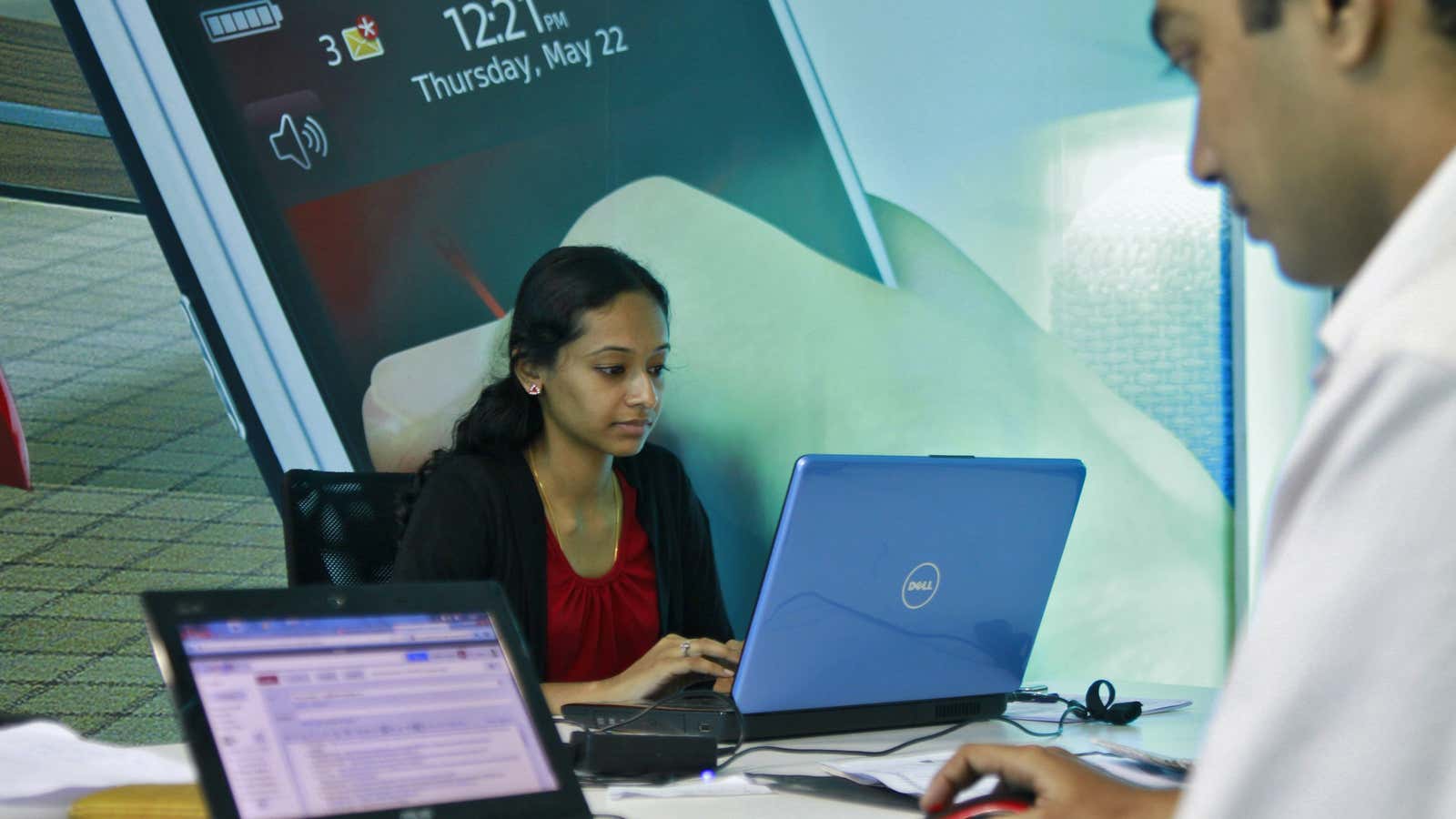India’s startup community is dragging its feet back to work from home amid the second wave of the Covid-19 pandemic.
Last year, when Covid-19 first started spreading in India and the country decided to go into a lockdown almost overnight, tech startups were quick to embrace the new normal and swiftly moved to a work-from-home setup. This time though, the fervour is lacking.
“The most common complaint we hear is disappearing lines between personal space and workspace,” said Pritesh Asher, co-founder and CEO of skincare brand Juicy Chemistry. “Getting a peaceful workspace is getting difficult with kids and aged parents at home. It gets difficult to manage work and home simultaneously.” Women are especially tired of juggling work, chores, and childcare.
The general consensus is that employees are ready to get back to offices to banter with colleagues over canteen meals. “Without meeting colleagues and not participating in the water cooler talks and the tea breaks, there is no friendship,” said Chayan Mukhopadhyay, co-founder and CEO of HR platform Qandle. “This is eventually leading to faster burnouts.”
Yet, work from home seems inevitable given the current situation. The second wave of the Covid-19 pandemic is proving to be much more fierce and fatal. On April 21, the country clocked a record high of over 295,000 new cases and over 2,000 deaths.
The challenges of work from home
Although remote work has given companies access to a larger talent pool that is location agnostic—possibly at a lower cost—training newer employees has been far from a walk in the park.
“Many are young programmers, not accustomed to this work style, and do not get the timely feedback or a walking pep talk which is needed,” said Yugal Joshi, vice-president of consultancy Everest Group. “Even if we forget admin and support roles, key technology roles and others are also being asked to join back. Start-ups are in a continuous hustle mode and need a lot of people-to-people interaction.”
Personal interactions also make for better social capital, experts reasoned. “For example, if I told you your idea was crap over a phone call, you will react to it a lot differently than if I told you that in person,” said Startup Squares’ Srinivasan. “You can decipher my intentions, my body language, a lot of the subtle communication better when done in person than in an opaque manner over a phone.”
Team dynamics and communications suffered majorly during the work from home phase for car safety solutions startup Safe Cams Digital Eye Solutions, according to founder Vanesh Naidoo. Seven-year-old EmpMonitor, too, struggled with lack of communication, low retention and reliability, and cybersecurity concerns, said Deepa Ghosh, CEO of the cloud-based employee monitoring software firm.
For companies, remote work helps keep overheads like rental costs, admin and back-office staff, and more down in a Covid-battered economy. It has also increased productivity and reduced payroll costs, said EmpMonitor’s Ghosh. Despite the perks, startups are not writing off the return of physical workplaces.
“The evils of work from home are far greater than its virtues,” said Vivek Srinivasan, founder of Startup Squares, a platform that helps budding entrepreneurs grow their businesses.
While most startup founders Quartz spoke to complained about the isolation that comes with work-from-home, a handful believe it is here to stay—at least partially.
“Unless and until there is a physical requirement for you to be at work, there is no reason why we should not adapt this culture going forward as well,” said Juicy Chemistry’s Asher, who believes it’ll take at least two to three years for everybody get vaccinated and feel comfortable going into crowded places and office spaces. By then, work from home will “become a way of life.”
Hybrid workplaces for Indian startups
Over the last year, the coveted milestone of getting an office space has been “diluted forever,” according to Keerthivasan Subramanian, founder and CEO of the digital live performance platform Playtoome. The money saved on real estate can be spent smarter and better to grow, businesses have realised.
Moreover, despite the struggles, employees have been glad to save on travel time and cost, and to dictate their own hours.
Health tech firm Navia Life Care does not have plans of bringing its staff back to the office in the near future. ‘This culture of flexible working hours has helped by giving everyone a chance of asynchronous work; our remote sales model functions with higher efficiency; and we have increased employee productivity along with work-life balance,” said co-founder Gaurav Gupta.
As for the lack of employee bonding—companies are trying to creatively combat to boost morale.
“The usual team-building activities like birthday cake cuttings, lunches, chai breaks, and portfolio events are replaced with virtual coffee and chit-chat sessions,” said Navia’s Gupta. Freelancer marketplace Tapchief hosts “team learning sessions” where one person teaches a new concept to the team every day. Fintech company Niyo held a virtual hackathon. Secondhand car sales site Cars24 introduced online fitness sessions and group challenges. To curb stress, anxiety, and loneliness, several companies are also offering counselling.
